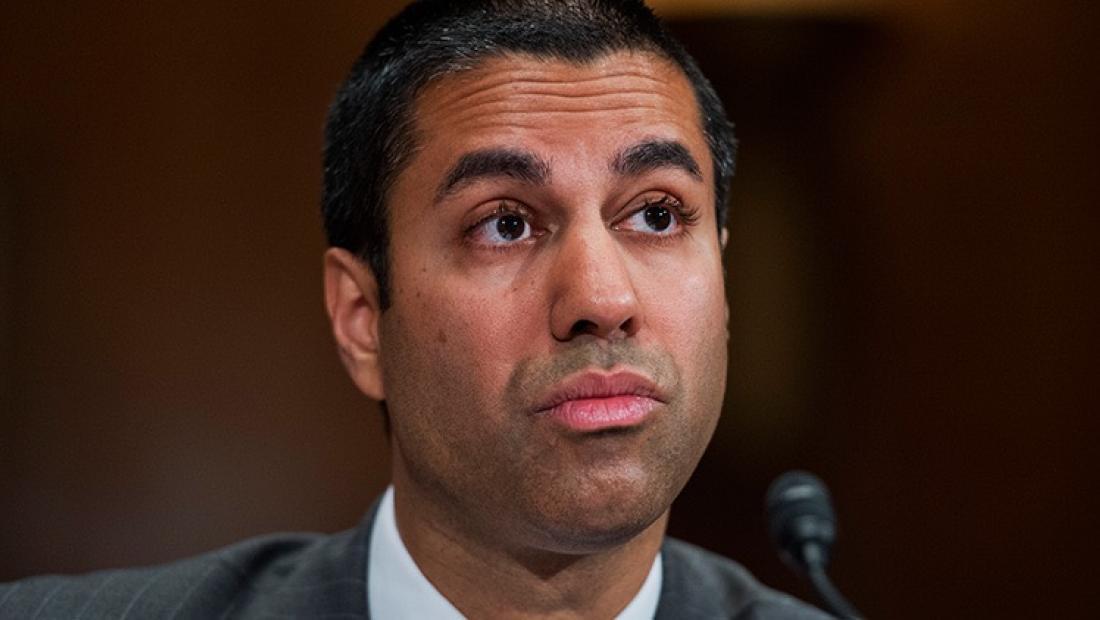Pai: Goal Is to Cut as Much Telecom Regulation as Possible

The smarter way to stay on top of broadcasting and cable industry. Sign up below
You are now subscribed
Your newsletter sign-up was successful
FCC chair Ajit Pai may have been stating the obvious given his conservative, deregulatory history, but he did so with gusto at a speech at the Reagan Library in Simi Valley, Calif., Tuesday night (Oct. 10), invoking the Republican president and his FCC chairs, Mark Fowler and Dennis Patrick.
Quoting Fowler, Pai said: "We want to eliminate, as much as we can, government regulation of the telecommunications marketplace so as to permit present players to provide new and innovative services to consumers and likewise permit new players to come in and compete. That's basically our approach."
Pai praised the elimination of the Fairness Doctrine during the Reagan Administration, which required broadcasters to seek out opposing viewpoints on controversial issues, which Pai called an affront to the First Amendment.
Related: FCC's Pai: Free Speech Is Under Siege
Its ghost has appeared to haunt conservatives in the form of Democrats periodically threatening to reinstate the doctrine, the elimination of which helped give rise to conservative talk radio. Pai has long decried such efforts at resurrection.
The chairman also praised the advent of price cap regulation under Reagan, which he said was a way to limit the government's micromanagement of profits, as well as setting aside what were then considered "junk bands" for what is now called unlicensed spectrum used for WiFi and Bluetooth and much more.
But Pai said Reagan's greatest contribution was a renewed sense of pride and optimism. Pai said that he shared that view, but that closing the digital divide was a key to making such optimism a new reality.
"[T]oo many Americans are frustrated," Pai said. "According to Gallup, only 25% of Americans are satisfied with the way things are going. That’s up from 18% last July, but hardly where we want to be."
Part of the problem, he suggested is the challenge of technology, including the challenge of making sure everyone can share in its free-market-driven bounty.
"Every American who wants to participate in our digital economy should be able to do so," Pai said, noting that was his top priority. "And to make that happen, we will embrace the free market, cut red tape, modernize our rules, and promote private ingenuity and investment instead of penalizing it... If we bridge the digital divide, we can raise distressed communities and bring new hope to people who feel like they’ve been left behind. But if we don’t, the gap between those who have and those who don’t will only widen.
"Unfortunately, the plain truth is that right now, we’re not where we need to be," Pai said.
But, like Reagan, Pai ended on a note of hope: "I couldn’t be more excited about the opportunities that lie ahead. I believe that it’s morning in digital America. The challenges before us are great, but the opportunities are so much greater."
The smarter way to stay on top of broadcasting and cable industry. Sign up below
Contributing editor John Eggerton has been an editor and/or writer on media regulation, legislation and policy for over four decades, including covering the FCC, FTC, Congress, the major media trade associations, and the federal courts. In addition to Multichannel News and Broadcasting + Cable, his work has appeared in Radio World, TV Technology, TV Fax, This Week in Consumer Electronics, Variety and the Encyclopedia Britannica.

